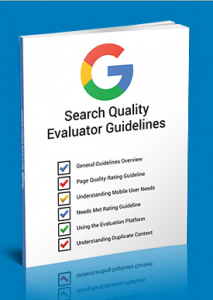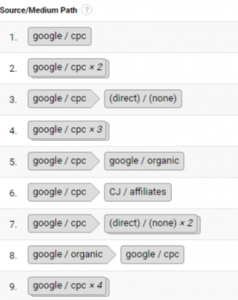Image-only emails can harm your customer relationships. Here’s why you should stop sending them and what to do instead.

Warning: I am in rant mode today. This happens fairly often because I understand email’s potential. Over my 25 years in email, I have seen email greatness come from large and small email teams at large and small companies. I have written about it and ranted about companies that sacrifice this potential by cutting back on their funding for email in 2024.
Today, one ongoing email problem has mushroomed into a colossal problem. I am compelled to set aside my other topic for this month and discuss it.
I’m not the first to address this problem — and yes, I am leaving you in suspense for a moment. John Theis, CEO of Email on Acid, was the loudest voice in the email community to condemn the practice. Since he retired, the spotlight has moved away. Now, it’s time to yank it back.
The problem? Image-only emails.
What’s the big deal, Ryan?
You might be thinking that right now. Maybe because you’re so used to seeing or sending them that you don’t understand how they can undermine your email program and affect your relationships with your customers.
Let me explain. I am enraged when I get image-only emails from top-level companies with stellar email track records. An email marketer might say, “Hey, I need to produce something pretty and get it out the door fast,” and assume that’s the end.
It’s not. Image-only emails have downstream implications for companies. It seems like a no-brainer solution, but companies that do this consistently are actively excluding specific audiences from being able to interact with the message — to view it, to act on it, to convert and provide value from it.
Yeah, that’s a big deal.
Why image-only emails are stupid
There, I said it. I am calling them “stupid.” As I said in an earlier MarTech article, image-only emails can get you sent to email jail.
Yes, email teams are short-staffed, underfunded and overworked to keep up with everybody’s demands to get email campaigns out the door. Some people want to send gorgeous, all-image emails that better represent the brand.
The easy answer might be to take a design, cut it up into images, drop it into a template and send it out. But the need to rush a campaign out the door is no reason to cut corners.
The biggest corner you’re cutting is assuming everyone will see your images. I will explain why you can’t do that below.
Here are three reasons why image-only emails are bad for your subscribers, your email program and your company.
1. New subscribers won’t see your pretty designs if they block images by default or intent
Let’s say your subscriber uses Gmail, and Gmail sees something in your email (like an out-of-proportion image-to-text ratio). Gmail will block those images by default and ask if the subscriber wants to view them. The automatic answer will not always be “Sure!” I block images by default, and I’m not the only one.
What will your subscribers see instead? This email from Magnolia, the home brand made famous by the husband-and-wife design team of Chip and Joanna Gaines, is typical:

Not much of a first impression, is it? At least the text links are informative, unlike the email in the recording below that repeats “Click here to see image” repeatedly.
Magnolia’s email is a good example of what not to do, but I have to give them credit for using descriptive text links. They would give me some idea of what was in the email and whether I should bother to click on anything. This next email — not so much. Look at all that lost opportunity!

When you send emails like this, you assume either everyone views images or they will grant you image viewing rights. That’s not realistic.
Outlook still blocks images by default unless the user changes a setting. Don’t assume your subscribers will either want or know how to fix that. Outlook accounts for less than 5% of the email client market, but if you market in B2B, that percentage will be higher.
Even though most desktop and mobile email clients now enable images by default, there’s no guarantee your readers will see or act on them.
2. Image-only emails are mobile-unfriendly
Image-only emails designed for desktop viewing can be too hard to read and click on in mobile email clients. With three of four email viewers using phones instead of desktops most often to check email, image-only emails cost you a significant chunk of your audience, along with the engagement and conversions you’ll lose.
3. You ignore the disabled community
That is not just a bad practice; it can also violate laws like the Americans with Disabilities Act, which requires emails to be accessible to people with visual, physical or cognitive limitations.
If you send emails for banks, insurance companies or other regulated companies or emails with legal notifications, you could face class-action lawsuits if your emails are not accessible by protected classes like people with disabilities.
Screen readers, which people with low or no vision rely on to read their email, make a mess of image-only emails. They recognize only live text like copy blocks or specially coded, descriptive alt tags. Clicking on tiny buttons and even tinier text links is hard for people with hand tremors, artificial limbs or hands or other physical limitations.
Note: People without visual limitations also use screen readers and other voice assistants to listen to their email instead of reading it. The audience for these assistive devices is wider than you think.
Listen to this recording of a screen reader going through a typical ecommerce image-only email. Ouch, right? Think of what that does to your brand equity and your customer’s impression of your brand.
How to balance beauty and usability
At this point, you might be thinking, “I’m with you on this, Ryan, but I have to take what my design team gives me, and they love all-image emails.”
I hear you. The good news is that fixing the image-only email problem can take less work than you might think.
First, remind your boss that emails with key info embedded in images (i.e., offers, unsubscribe links, contacts, store hours, directions and the like) don’t perform as well as emails that use text or rich text.
You have a business case for not using image-only emails, too. My email industry colleague Jeanne Jennings (also a MarTech contributor) discovered that an email with an offer in rich text generated 64% higher revenue per thousand emails sent than one that embedded the offer in an image. The image-plus-text email also had a 74% higher average order value than the image-only email. With Jennings’ play-by-play testing guide, you could replicate this easily with your team.
Next, raise your text game:
- Add a text block with all of your key info to each email. Write inviting copy that not just informs but also sparks intent.
- Make your subject line and preheader text more info-rich, too.
- Add descriptive alt text to each image. Be sure it is coded for screen readers and other voice assistants. Don’t just write “new shoes.” Say, “Picture of Clarks Cloudsteppers loafer in black with round toe.”
- Use bulletproof buttons instead of text links. They display even when with disabled images.
Finally, if your design team isn’t up on email accessibility, point them to the Web Content Accessibility Guidelines offered through the W3C.
Wrapping up
Our first job as email marketers is to do no harm to our company, customers or brand. Even if you have the luxury of time but still send out image-only emails, take some time to think about what you’re telling your subscribers.
You’re saying, “I don’t care about your business.” Now, think about your own inbox. Whether you enable or block images, what do you do with an email you can’t act on? And how does that affect your opinion of that company?
I’m seeing that message more often in my own inboxes now. It’s alarming to see how we have regressed to the early days of HTML when design teams forgot about the message and focused on making pretty emails instead.
Listen again to that recording of a screen reader wrestling with an all-image email. Is that what you want your customers to experience?
We can do better!
Rant over. Go about your day. But before you do, create your plan to wipe out image-only emails.
The post Stop insulting your audience with this email behavior appeared first on MarTech.
(2)
Report Post







